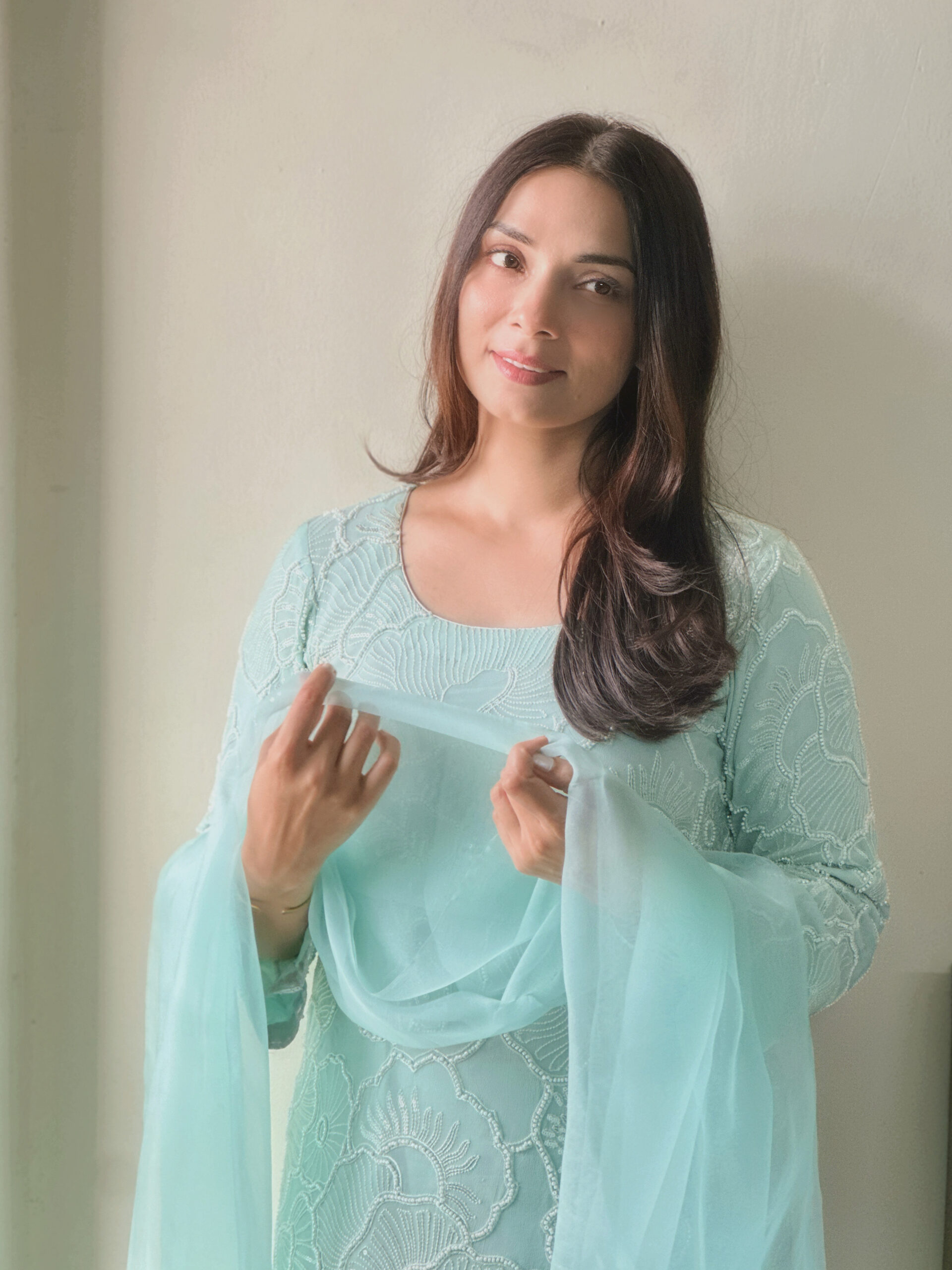Every role tells her story.” Pawan’s story is about being real, not giving up, and the inner strength that comes from believing in yourself. It goes from theater applause to on-screen emotions.
Pawan, what inspired you to start in theatre, and how did your stage experiences influence your approach to acting?
From the very beginning, the theatre felt like home to me. It was the first space where I could truly express emotions without fear of being judged. Every stage performance taught me something new not just about acting, but about humanity. Theatre made me fall in love with honesty in performance, you can’t hide behind retakes or filters; it’s pure, raw emotion. That honesty became the foundation of everything I do on screen today.

When you won the Gold Medal and University Role of Honour in Theater, what did that moment teach you about your own potential?
That moment was more than an award it was a quiet conversation with myself. It taught me that hard work, faith, and passion never go unnoticed. I realized that I wasn’t just performing anymore; I was growing, evolving, and finding my purpose.
The recognition gave me confidence, but more than that, it reminded me to stay grounded and keep learning because art doesn’t end with an achievement it only begins there.
What were some challenges you faced when moving from stage to Punjabi films and web series?
The transition was beautiful, but not easy. Theatre teaches you to live every moment loudly and fully, while the camera asks you to feel the same depth but in silence. Learning that balance took time.
The film industry also brings its own challenges competition, uncertainty, and the fear of being misunderstood. But every challenge helped me grow stronger. I learned to adapt without losing the sincerity that theatre had gifted me.

Your role as Keerat in Yaar Jigri Kasooti Degree connected deeply with audiences. How did you prepare for that part, both emotionally and artistically?
Keerat was very close to my heart because she was real emotional, sensitive, and strong in her own quiet way. To prepare, I spent a lot of time observing people around me girls who carry responsibility with grace but rarely express their pain.
I built Keerat from those silences, from the things she never said out loud. Emotionally, I connected with her vulnerability, and that made her feel alive on screen. I think audiences related to her because she wasn’t “performed”; she was simply felt.
Among your film roles, Raunak, Rocky Mental, Laung Laachi 2, etc. — which character pushed you the most, and why?
Every character brings a new challenge, but Raunak truly stayed with me because of my character Bholi. She was innocent, emotional, and carried a quiet strength that spoke volumes. Playing Bholi pushed me to explore the simplicity of emotions, how a soft heart can still hold immense courage.
Her silence, her eyes, her small gestures everything had meaning. That role reminded me that sometimes the most powerful performances are the ones whispered gently, not shouted loudly.
How do you balance bringing authenticity into every performance while also meeting the expectations of the audience and the industry?
For me, authenticity comes before everything else. If I don’t believe in what I’m feeling, how will the audience? Of course, there are expectations but I try not to perform for them, I perform with them in mind.
My focus is always to stay truthful to the story and character. When honesty drives your work, expectations automatically align. I think the audience connects most deeply when they sense truth in your eyes, not perfection in your performance.
How does painting help you communicate what words sometimes can’t?
Painting is my quiet therapy. When I paint, I don’t think I just feel. Colours express what words often fail to. Sometimes emotions are too complex or too fragile to say out loud, and that’s when art helps me breathe them out.
It’s also very similar to acting both come from the same place of honesty.Painting ateaches me patience, depth, and observation qualities that always find their way back into my performances.
How does your husband’s support shape your choices in selecting roles, in dealing with criticism, or in pursuing riskier projects?
His support is my biggest strength. He doesn’t just stand behind me, he stands beside me in every decision, every doubt, and every success. When I take up a challenging role or face criticism, his belief reminds me who I am and why I started.
In this industry, where self-doubt can easily creep in, having a partner who believes in your art as much as you do is a blessing. His calmness balances my chaos, and that keeps me fearless in my choices.
What changed in your father’s view of your acting career over time, and what helped you gain his trust and respect?
In the beginning, my father wasn’t comfortable with my decision to act. He wanted stability for me something safer, something certain. But over time, as he saw my dedication, the long rehearsals, the discipline, and the love I had for my craft, his perspective slowly changed.
The day he told me he was proud of me will always stay close to my heart. Earning his respect wasn’t about success; it was about showing him that my passion had purpose. That moment gave me more strength than any award ever could.
Off-screen, you mention fitness, wellness, travel, and observing everyday beauty. How do these feed into your work as an actor?
I believe creativity needs peace and inspiration. Fitness keeps my mind focused, travel opens my heart to new emotions, and observing everyday beauty keeps me grounded. As an actor, I’m constantly drawing from life a smile on a stranger’s face, an old wall with stories, a sunset that feels like a pause.
These small, quiet moments keep my soul alive and help me bring truth into every performance. Acting isn’t just about what happens on screen; it’s about what you absorb when no one is watching.
Is there a specific project or role you haven’t done yet but really want to, because it would challenge you or show a new side of you?
Yes, I’d love to explore a role that challenges my emotional limits something intense and layered, maybe based on a real story. I want to play a character who transforms deeply through pain and self-discovery.
As an actor, I’m always searching for stories that shake something inside me, that make me uncomfortable in the best way. Because growth, I feel, comes from the roles that scare you a little the ones that demand your soul, not just your skill.
What advice would you give to young dreamers who are starting out now, especially when it comes to being patient, dedicated, and courageous?
I’d tell them don’t rush your journey. Every small step matters, even the ones that feel invisible. Be patient with yourself, stay consistent, and never lose your honesty in the process.
Rejections, delays, and doubts are part of every artist’s story, but they don’t define you your perseverance does. Believe in your art, and keep learning. The world may take time to notice you, but your light will always find its way through if you keep it burning.




